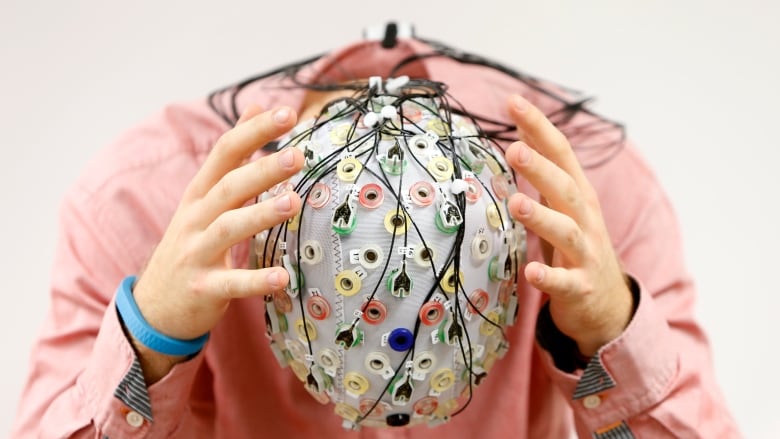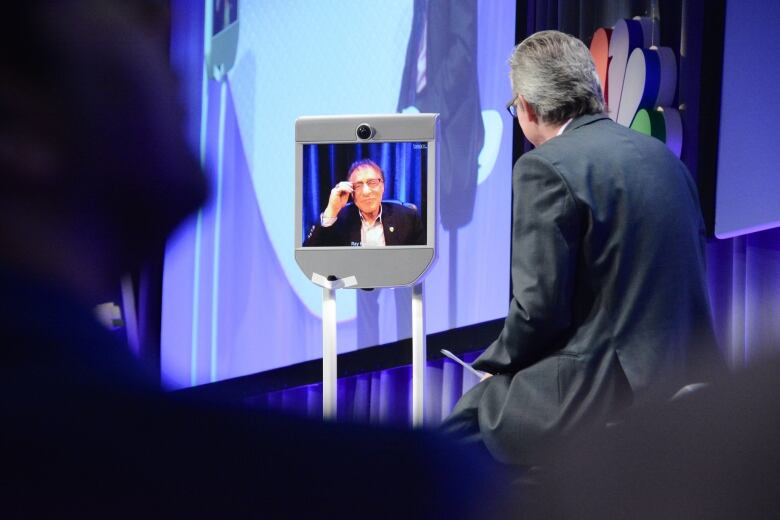Artificial intelligence, human brain to merge in 2030s, says futurist Kurzweil
Ray Kurzweil, Google's director of engineering, says we're close to linking our brains with AI

Science fiction has a long tradition of pittingartificial intelligence (AI) against humanity in a struggle for dominance.
Ray Kurzweil, Google's director of engineering and a noted futurist and inventor, envisions a more co-operative future. He says the human brain will soon merge with computer networksto form a hybrid artificial intelligence.
"In the 2030s we're going to connect directly from the neocortex to the cloud," said Kurzweil, speaking at the Exponential Finance conference in New York on June 3.
"When I need a few thousand computers, I can access that wirelessly."
- Ex Machina's Domhnall Gleeson: "This is a film about ideas"
- Yangyang, humanoid robot, unveiled at Beijing conference
- Deep Learning Godfather says machines learn like toddlers
Creating artificial minds
In his 2012 book,How to Create a Mind,Kurzweilsaidthe neocortex of the human brain contains 300 million pattern processorsthat areresponsible for human thought. These pattern processors could be artificially replicated, arguedKurzweil, allowing artificial intelligence to surpass human ability.
That wouldn't make the human brain obsolete, though. By linking our brains tocloud computers, claims Kurzweil,humans could expand the limits of ourown computing ability and eventually, upload our own brains to the cloud.
"As you get to the late 2030s or2040s, our thinking will be predominately non-biological and the non-biological part will ultimately be so intelligent and have such vast capacity it'll be able to model, simulate and understand fully the biological part," said Kurzweil.

Kurzweil saidhuman intelligence has already merged with technology, although not to the extent that he predicts.
"A kid in Africa with a smartphone has more access to human knowledge than the president of the United States did 15 years ago."
In a sense, Kurzweil's appearance at the Exponential Finance conference was a merging of humanity and technology he spoke onstagevia video link.
"I finally figured out how to live forever in a robot body," hejoked.
Fear of artificial intelligence
Kurzweil acknowledged that artificial intelligence is a scary prospect. Responding toa question from the audience, he argued that humans will eventually become comfortable sharing the world with AI.
"It's helping us to diagnose disease, to cure disease, alleviate poverty and clean up the environment," said Kurzweil.
"I tend to be optimistic, but that doesn't mean we should be lulled in to a lack of concern. I think this concern will die down as we see more and more positive benefits of artificial intelligence and gain more confidence that we can control it."
Kurzweil also tackled the question of legal rights for artificial intelligences, a popular sci-fimotif. To him, the rise of intelligent machines connected to human consciousness will force humanity to "rethink the idea of rights."
"It wasn't very long ago that women didn't have the right to vote," noted Kurzweil in response to an audience question.
"We'll realize that consciousness, free will does not require a biological substrate."
A history of bold predictions
Kurzweil has a long history of making bold predictions about the future of technology. Much of his writing has focused on the "singularity," the point at which artificial intelligence will surpass human intelligence.
In a 2010 essay, Kurzweil reviewed 147 predictions he made in his 1999bookThe Age of Spiritual Machines. Of those predictions, Kurzweil determined that 78 per centwere "entirely correct" as of the end of 2009, and eight per centwere "essentially correct."
Those predictions included:
- The rise of portable computing.
- The availability of wearable computing.
- The removal of keyboards from portable devices.
- Cables disappearingin favour of wireless technology.
- Computer displays built into eyeglasses, and,
- The distribution of media such as books, music, and movies in an entirely digital form.
An expert in the artificial intelligence field of pattern recognition, Kurzweilis known for inventing software that could scan a document writtenin any font and turn it into digital text. He was also a pioneer in text-to-speech technology and computerized speech recognition.
He has received numerous awards and accolades in the fields of engineering and technology design.Kurzweil joined Google as director of engineering in 2013.












_(720p).jpg)


 OFFICIAL HD MUSIC VIDEO.jpg)
.jpg)



























































































